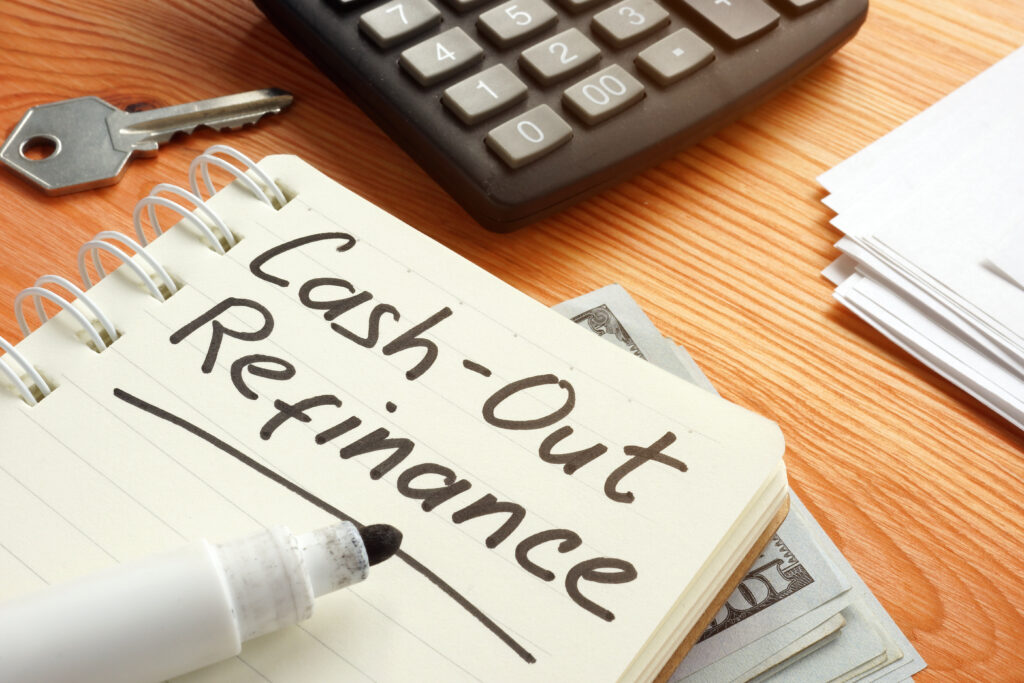
A cash-out refinance mortgage is a type of home loan that allows homeowners to refinance their existing mortgage while borrowing more than the outstanding balance. This additional borrowed amount is received in cash and can be used for various financial purposes. Here’s a brief description of a cash-out refinance mortgage:
1. **Refinancing Existing Mortgage:** A cash-out refinance involves replacing the current mortgage on a property with a new one. This new mortgage typically has updated terms, including a new interest rate and loan amount.
2. **Access to Home Equity:** The primary purpose of a cash-out refinance is to tap into the home’s equity, which is the difference between the property’s market value and the outstanding mortgage balance.
3. **Cash Received:** When the cash-out refinance is approved, the homeowner receives a lump sum of cash. The amount is based on the equity available in the home and the loan-to-value ratio determined by the lender.
4. **Use of Funds:** Borrowers can use the cash received from a cash-out refinance for various purposes, including home improvements, debt consolidation, education expenses, investment opportunities, or other financial needs.
5. **Increased Loan Amount:** The new mortgage amount in a cash-out refinance is higher than the previous mortgage balance, as it includes the additional cash borrowed.
6. **Interest Rate:** Cash-out refinance loans may have a different interest rate compared to the original mortgage, potentially resulting in a higher or lower interest rate depending on current market rates.
7. **Repayment Terms:** The terms of the new mortgage, including the interest rate, loan term, and monthly payments, can be customized to align with the borrower’s financial goals.
8. **Loan-to-Value (LTV) Ratio:** Lenders typically have maximum LTV ratios for cash-out refinances, limiting the amount of equity that can be borrowed. These limits are usually around 80%, but they can vary.
9. **Debt Consolidation:** Cash-out refinances are often used to consolidate high-interest debt, such as credit card balances or personal loans, into a single, lower-interest mortgage payment.
10. **Property Appraisal:** To determine the property’s current market value, lenders may require an appraisal before approving a cash-out refinance.
11. **Closing Costs:** Like other mortgage transactions, cash-out refinances involve closing costs, which can include application fees, appraisal fees, title insurance, and more. Borrowers should consider these costs when evaluating the benefits of a cash-out refinance.
12. **Impact on Monthly Payments:** Borrowers should be aware that increasing the loan amount through a cash-out refinance can lead to higher monthly mortgage payments.
Cash-out refinance mortgages can provide homeowners with a valuable financial tool for accessing their home’s equity to achieve various financial goals. However, borrowers should carefully assess their needs, the costs associated with the refinance, and the impact on their long-term financial situation before proceeding with a cash-out refinance.